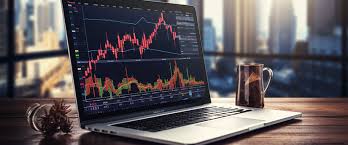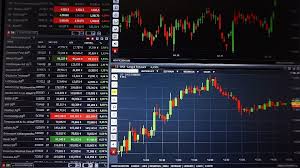
Forex trading, or foreign exchange trading, is one of the most accessible and popular investment opportunities today. Millions of traders engage in buying and selling currency pairs daily. Whether you’re motivated by the allure of financial independence or the excitement of market speculation, understanding the basics of forex trading is crucial for success. In this guide, we will provide you with essential tips and strategies to get started, plus we’ll also highlight resources like beginner forex trading Trading Brokers in Vietnam to help you in your trading journey.
What is Forex Trading?
Forex trading involves the exchange of one currency for another and is conducted in pairs, such as EUR/USD, GBP/JPY, and USD/CHF. The forex market is decentralized, meaning it does not have a physical location and operates 24 hours a day, five days a week. It is one of the most liquid markets in the world, with an average daily trading volume exceeding $6 trillion.
Getting Started: Choosing a Broker
One of the first steps in your forex trading journey is selecting a reputable broker. A broker provides the platform through which you can buy and sell currencies. Here are some factors to consider:
- Regulation: Ensure your broker is regulated by a reputable authority.
- Trading Platform: Check if the broker offers a user-friendly trading platform with the necessary tools for analysis.
- Spreads and Fees: Look at the broker’s spreads (the difference between buy and sell prices) and any other trading fees.
- Customer Support: Good customer service can help you quickly resolve any issues that arise.

Understanding Forex Quotes
Forex quotes show you how much of the second currency is needed to purchase one unit of the first currency. For example, if the EUR/USD quote is 1.2000, it means that 1 Euro is equal to 1.20 US Dollars. It’s important to understand the concept of pips as well, which is the smallest price move in a currency pair. For most currency pairs, a pip is equivalent to 0.0001.
Fundamental and Technical Analysis
Successful forex trading often relies on a combination of fundamental and technical analysis:
Fundamental Analysis
This involves evaluating economic indicators, news events, and geopolitical developments that can affect currency values. Key indicators include:
- Interest rates
- Inflation rates
- Employment figures
- Economic growth/decline

Technical Analysis
Technical analysis involves studying historical price movements and using charting tools to predict future price movements. Traders often use various indicators and patterns, such as moving averages, support and resistance levels, and Fibonacci retracement levels to make informed decisions.
Risk Management: The Key to Survival
Risk management is crucial in forex trading since the market can be highly volatile. Here are some strategic practices to manage risk:
- Use Stop-Loss Orders: A stop-loss order automatically closes a trade at a specified price to prevent excessive losses.
- Position Sizing: Determine how much of your trading capital to risk on a single trade. A common rule is to risk no more than 1-2% of your capital on any trade.
- Diversification: Avoid putting all your eggs in one basket. Consider trading multiple currency pairs to spread risk.
Developing a Trading Plan
Creating a trading plan is essential for discipline and consistency. Your plan should include:
- Your trading goals (short-term and long-term)
- Strategies for entering and exiting trades
- Your criteria for selecting currency pairs
- A plan for ongoing education and development as a trader
Practice Makes Perfect: Open a Demo Account
Before trading with real money, consider opening a demo account with your chosen broker. This allows you to practice trading with virtual funds and get accustomed to the trading platform. Familiarizing yourself with the trading environment can help build your confidence and refine your strategies without any financial risk.
Continuing Education and Staying Informed
The forex market is dynamic, with constant changes and new information emerging regularly. To stay ahead as a trader, it’s vital to engage in ongoing education. Here are some resources to consider:
- Online courses and webinars on forex trading
- Forex trading forums and communities for insights and sharing experiences
- Financial news websites for updates on economic indicators and trends
Final Thoughts
Beginning your forex trading journey can be exciting yet challenging. By understanding the basics, selecting a suitable broker, employing effective analysis strategies, managing your risks, and continuing to educate yourself, you can build a strong foundation for successful trading. Remember that patience and discipline are key attributes of a successful trader. Good luck on your trading journey!
